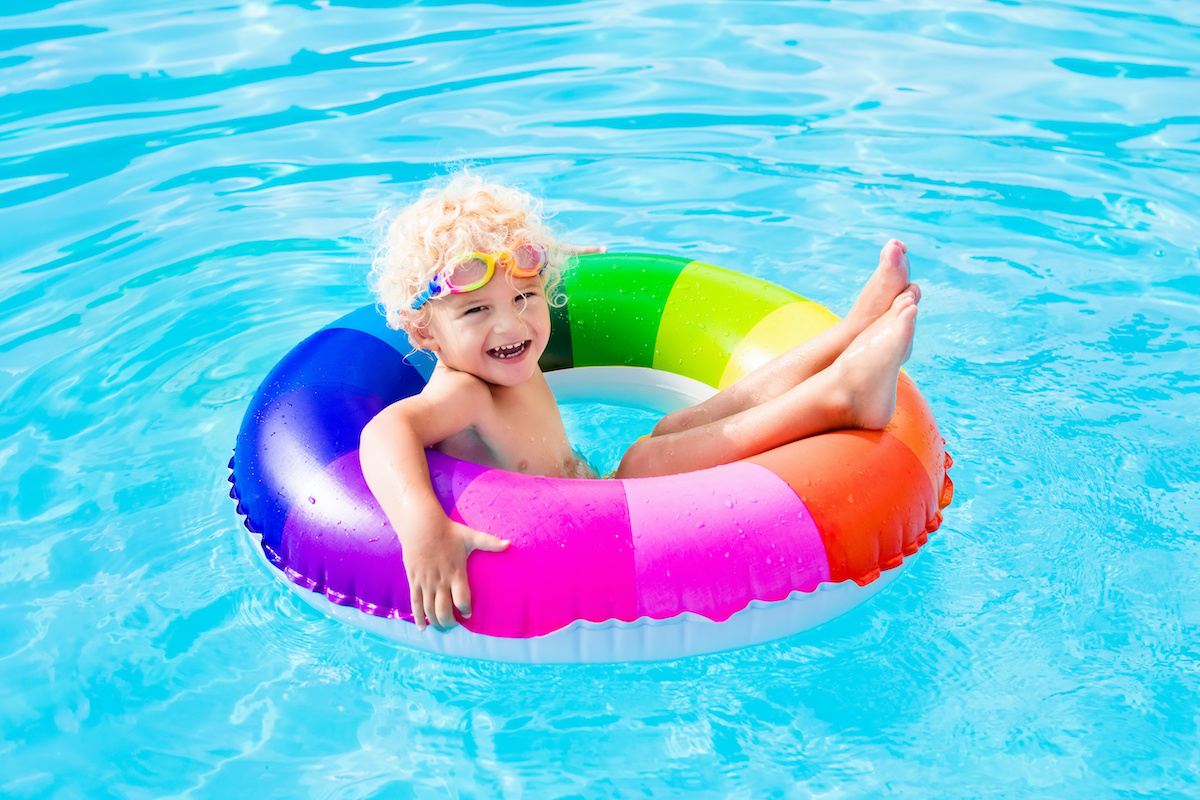Temperatures are rising, which means summer is right around the corner. That means that the swimming season is almost here as well, so it’s time to brush up on some water safety. The best way to prepare your kids for the pool or beach is to enroll them in formal lessons when they’re learning to swim.
According to the American Academy of Pediatrics (AAP), children over the age of one may be at a lower risk of drowning if they have had some formal swimming instruction. Other than preparing kids with lessons, we’ve gathered some helpful water safety tips to keep everyone happy and healthy all summer long.
1. No Swimming Alone
One of the first water safety tips you should follow this summer is to make a rule that nobody swims alone. Even strong swimmers need to have someone out with them to be there in case something happens. In public places like neighborhood pools or beaches, make sure to swim with a lifeguard on duty. They’re trained to help in emergencies and they also keep an eye on water conditions to make sure it’s safe to swim in the ocean or lake.
2. Make Sure Kids are Supervised
While heading to the pool or beach can be a relaxing time for parents, they still need to be alert when children are in the water. Parents should be within arms reach of young children at all times. Older children who are experienced swimmers should still be monitored while in the water. They may try to flip or dive into the water, which can be dangerous.
3. Wear Life Vests When Needed
If you’re doing activities on the open water such as boating, children should wear a Coast Guard-certified life jacket. Young and inexperienced swimmers should also wear an approved life jacket whenever they are around water. Water wings, floaties, kickboards, or other floats aren’t a substitute and should only be used when a parent or trustworthy adult is within arms reach of the child. Also, even if a child is wearing a life vest, you still need to follow all the regular water safety guidelines.
4. Skip Breath-Holding Games
Holding your breath is an important part of learning to swim. However, it’s dangerous for children to hold their breath for extended periods of time. This can make them hyperventilate and even lead to passing out. This means you need to make sure kids know it’s not acceptable to compete to see who can hold their breath the longest. And they shouldn’t try to swim underwater for long periods without coming up for air. Kids who swim competitively should learn breathing techniques in practice to avoid hyperventilating.
5. Stay Away from Pool Drains
One of the most important water safety tips kids and adults should follow is to stay away from pool drains. Make sure you know where the drains are in the pools you swim in and teach kids to stay away. Bathing suits or hair may get caught in the drain, which can lead to injury or even drowning. If you notice that a drain isn’t covered, let someone know.
6. Don’t Swim Sick
Adults and children that are sick, especially with symptoms like diarrhea should not swim. The germs that cause the illness can be spread in the water and make other people sweat. At public pools, the best practice is to shower or rinse off for about one minute before getting into the water. And check yourself and your kids before entering the water.
7. Don’t Swallow Water
Another one of the water safety tips you should follow this summer is to not swallow water. While small accidents can happen when swimming, avoid swallowing water in any environment (pool, ocean, lake, etc). According to the Centers for Disease Control and Prevention (CDC), just one mouthful of water containing certain germs can make you sick for up to 3 weeks.
8. Learn CPR
While learning these water safety tips can help you keep your family safe, accidents do happen. That’s why it’s always a good idea to learn CPR in case of an emergency. The American Red Cross offers classes to learn and get certified in CPR.
—
The board-certified pediatricians and staff at Wake Forest Pediatrics are dedicated to providing quality care to patients in Wake Forest and Knightdale. If you have questions about keeping your child safe and healthy this summer, call our Wake Forest office at 919-556-4779 or our Knightdale office at 919-266-5059 to make an appointment.




